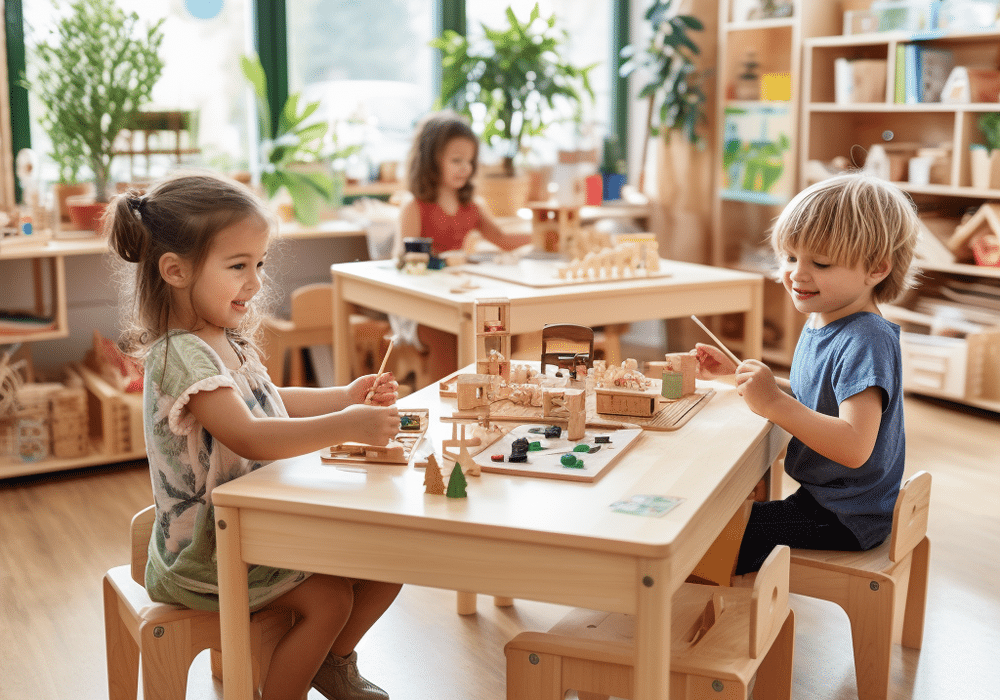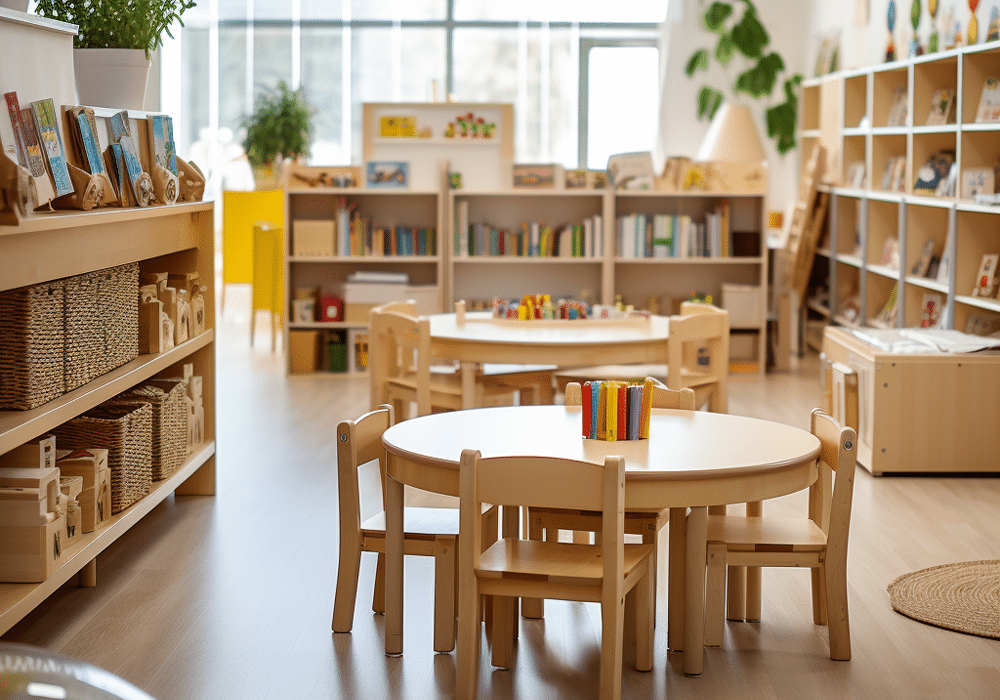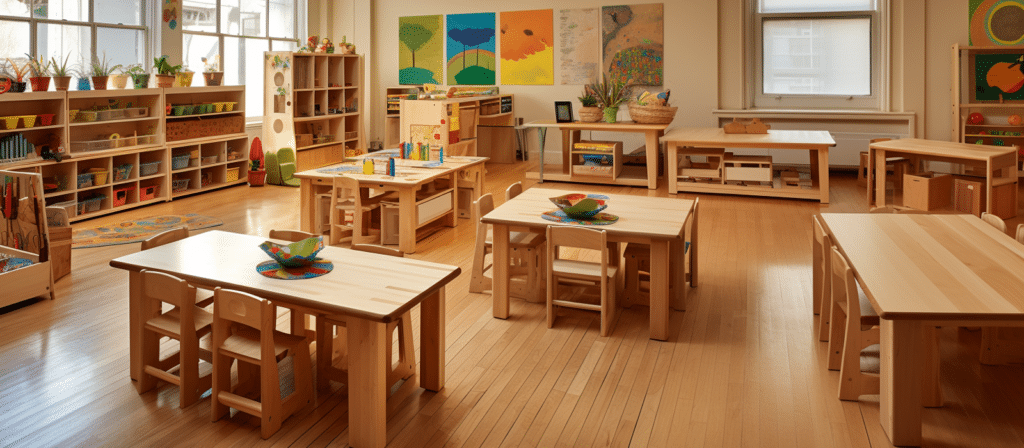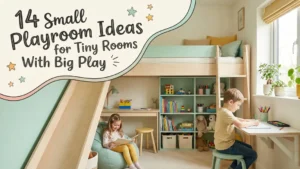Have you ever wondered how Montessori education can be adapted to meet the unique needs of children with special requirements? In this article, we’ll explore the world of adaptive Montessori furniture, designed to provide an inclusive and empowering learning environment for all children, regardless of their abilities or challenges.
Adaptive Montessori Furniture for Children with Special Needs is an innovative approach that ensures every child can access and benefit from the Montessori method. This specialized furniture is thoughtfully designed to cater to a wide range of needs, making Montessori education truly inclusive.
What is Adaptive Montessori Furniture?
Adaptive Montessori furniture is specifically designed to meet the physical, cognitive, and sensory needs of children with special needs. Inspired by the Montessori educational approach, which focuses on hands-on learning and independence, this furniture enables children to actively participate in their environment and engage in meaningful activities.
Why is Adaptive Montessori Furniture Important?
Children with special needs often face challenges in their daily lives, including limited mobility, sensory sensitivities, and difficulties in focusing and organizing their tasks. Traditional furniture may not adequately support their unique requirements, hindering their ability to learn, play, and interact with their surroundings effectively.
Adaptive Montessori furniture addresses these challenges by providing customized features and functionalities. This specialized furniture promotes accessibility, sensory integration, and independence, enabling children to actively participate in their learning journey and develop essential life skills.

How Does Adaptive Montessori Furniture Support Children with Special Needs?
Adaptive Montessori furniture is designed to adapt to the changing needs of children with special needs. It offers adjustable features such as height, angle, and support mechanisms to accommodate various physical abilities and ensure optimal comfort. This adaptability allows children to engage in activities independently, promoting self-confidence and a sense of achievement.
Moreover, adaptive Montessori furniture incorporates sensory elements to create a calming and engaging environment. For example, sensory cushions, textured surfaces, and visually stimulating elements can help children with sensory sensitivities regulate their sensory experiences, enhance focus, and improve concentration.
What are the Benefits of Adaptive Montessori Furniture?
The benefits of adaptive Montessori furniture for children with special needs are numerous. Here are a few key advantages:
- Enhanced Independence: Adaptive furniture empowers children to take control of their learning and daily activities independently. The ability to adjust furniture according to their needs promotes self-reliance and a sense of ownership.
- Improved Focus and Concentration: By incorporating sensory elements, adaptive Montessori furniture helps children with special needs stay engaged and focused. The ergonomic design and customizable features ensure a comfortable and distraction-free learning environment.
- Promotion of Motor Skills: Adaptive furniture encourages children to engage in physical activities that enhance their motor skills and coordination. Whether it’s climbing stairs, using a balance board, or manipulating objects, children can develop their gross and fine motor skills in a safe and supportive manner.
- Inclusion and Social Interaction: Adaptive Montessori furniture fosters inclusivity by creating a supportive environment for children with special needs to interact with their peers. By removing physical barriers and promoting equal participation, it nurtures social connections and encourages collaboration.
- Personalized Learning: Each child with special needs has unique requirements. Adaptive furniture allows for customization to cater to individual needs, ensuring that each child can learn and explore at their own pace and in their preferred style.

What are some examples of adaptive Montessori furniture?
One example of adaptive Montessori furniture is an adjustable table that can be raised or lowered to accommodate different heights, ensuring that children are at the optimal level for engaging in activities. This promotes proper posture and reduces strain on the body. Another example is a sensory chair that provides calming or stimulating input, depending on the child’s needs. By incorporating sensory elements, such as textured surfaces or rocking motions, these chairs create a sensory-rich learning environment.
How can adaptive Montessori furniture enhance learning experiences?
Adaptive Montessori furniture empowers children with special needs to take an active role in their learning experiences. By providing them with the tools and environment they need, it allows them to explore and engage with educational materials at their own pace and comfort level. This promotes a sense of ownership and autonomy, which can significantly enhance their motivation and engagement with learning activities.
Conclusion
In conclusion, adaptive Montessori furniture offers a transformative approach to learning for children with special needs. By providing a supportive and inclusive environment, it enables them to thrive and reach their full potential. At BeeChair, we are committed to designing and creating innovative adaptive Montessori furniture that promotes independence, fosters learning, and celebrates the unique abilities of every child.
Together, let’s unlock the potential for learning and growth in children with special needs!













